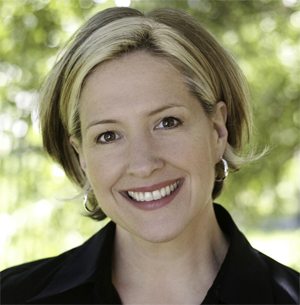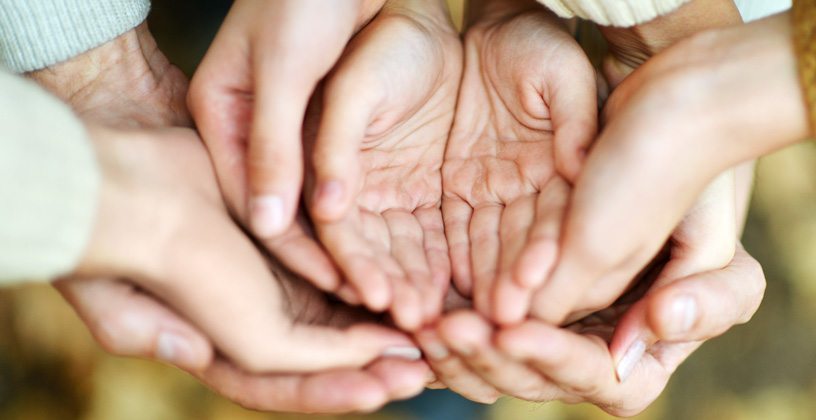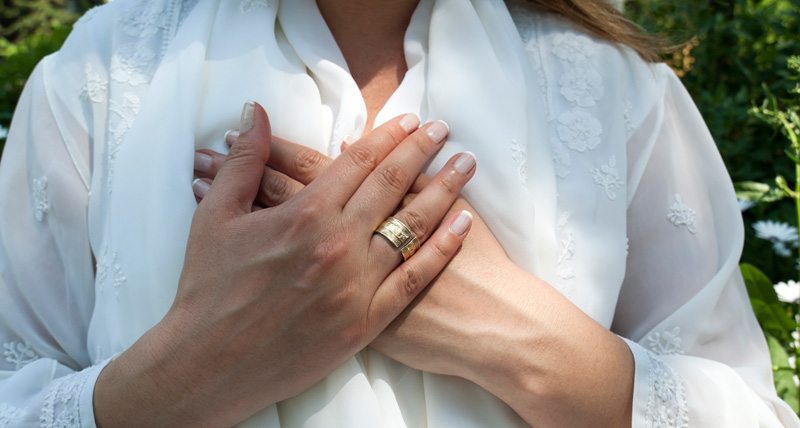We are often conditioned from an early age to put others first, to think of others’ feelings and needs, and subconsciously by doing so, not place enough, or any importance on our own. Particularly for those of us who are healers, this sense of wanting to help others, to heal those around us, can result in very poor boundaries, and little or no self care. There can be an almost martyr-like tendency in some people, a sense of needing to sacrifice the self in order to heal and serve others. From childhood, women especially are taught to empathise, listen, take on another’s problems, which becomes ingrained until it becomes a default response.
There is much that can be tangled up in the mix, a number of different and often subconscious issues which can cause us to not hold firm boundaries, or even be aware that we have boundaries at all.
- A feeling of not being good enough or deserving.
- A belief that self sacrifice or not being selfish makes us better people.
Sometimes we can worry that having boundaries will mean we are less caring, less compassionate or have the fear that others will think that of us.
Brené Brown, who conducted extensive research and carried out numerous interviews on this subject, has the following to say: “During the interviews [I did as part of my research], it blew my mind when I realised that many of the truly committed compassion practitioners were also the most boundary-conscious people in the study.

Here’s what I learned: the heart of compassion is really acceptance. The better we are at accepting ourselves and others, the more compassionate we become…It’s difficult to accept people when they are hurting us or taking advantage of us, or walking all over us. This research has taught me that that if we really want to practice compassion, we have to start by setting boundaries and holding people accountable for their behaviour. We live in a blame culture – we want to know whose fault it is and how they’re going to pay. We do a lot of screaming and finger pointing but we rarely hold people accountable. Wouldn’t it be better if we could be kinder but firmer? How would our lives be different if there were less anger and more accountability? What would our work and home lives look like if we blamed less but had more respect for boundaries?”
A common fear is of what others will think of us if we say no, that they will think less of us, will ostracise us or cast us out. Or even persecute us. We can be scared to be different, to stand out from the crowd.
Many of us believe that pleasing others is the way to make them happy, or to make them like us. If we impress others, it satisfies our ego, and makes us feel like we are worthwhile, that we matter. That we mean something.
None of these issues, beliefs or fears are healthy. And none of these actually best serving other people, or yourself.
 The importance of boundaries
The importance of boundaries
Boundaries are essential to healthy relationships and also to living a healthy life. Having healthy boundaries means knowing and understanding what your limits are. Telling others what is acceptable to you and what is not.
Not having boundaries can mean we take on other people’s energies, emotions, thoughts, beliefs, which can be stored in our bodies, causing mental and physical illness.
Many people equate looking after yourself, or putting yourself first, with being selfish, and that altruism is the most caring and evolved way of being.
There is an often used example of survival priority in the instructions about what to do in an emergency on a plane. It is always stressed that the adult must put their oxygen mask on first, before helping their children on with theirs. The parent’s natural instinct might be to save their children first. But what would happen to their children if they themselves were to pass out while doing so? Who would look after them then?
The frequently quoted saying ‘you can’t pour from an empty cup’, really captures this concept. It is a metaphor for making sure that we take care of ourselves, emotionally, energetically, physically and mentally. Making sure that our cup is full before we can give to others.
- Self care is a necessity, not an indulgence – it is about self-preservation not selfishness.
- Setting healthy boundaries is vital for our well-being.
- If we don’t take care of ourselves first, how can we help others?
Some signs and symptoms you may not have healthy boundaries
- Are you somebody who relies on others to validate you, or complete you, or make you happy?
- Do you find that people often dump their stuff on you, but aren’t there when you need them?
- Do you regularly feel drained or overwhelmed?
- Perhaps you feel incomplete if you don’t have a partner?
- Do you often need a release at the end of the day, be it alcohol, or drugs, or comfort food?
- Are you uncomfortable with being honest with people?
- Do you find yourself doing things that you don’t want to do on a regular basis, feeling incapable of saying “No”?
- Always want to keep everybody around you happy?
- Do you not know what you want a lot of the time, feel unable to express your needs?
Not having defined boundaries in place can leave us open to so much: taking on other people’s soul fragments, allowing others to cord into us, absorbing their energies, beliefs and programming. We can become ill, stressed or angry. Not have a clear sense of who we are.
Taking on other people’s stuff and carrying it for them actually disempowers them, not allowing them to learn how to deal with things themselves.
How to become aware of your boundaries and to set them
You can’t set good boundaries if you don’t know where you stand, what is right for you. It’s important to identify your physical, mental, emotional and spiritual limits.
- Think about what you are willing to tolerate, what you are happy to accept, and what makes you uncomfortable or stressed.
- Pay attention to what makes you feel mutinous or angry. Or fearful or guilty. Those feelings will help you to identify what your limits are.
- Spend time with yourself, feel into what is comfortable for you, what is pleasant, what you enjoy doing.
- Pay attention to when your body is tired, your mind is overfull or overwhelmed, your emotions are ragged or raw.
- Notice if people drain you and rethink the amount of time you spend with them.
Some key emotional red flags that boundaries are being crossed are when discomfort and resentment arise. If you feel these at being given a request, or during an interaction with somebody, pause for a moment. Notice and allow these feelings to rise up. We are so often used to suppressing these feelings, we push them down, into our subconscious minds and bodies, where they can manifest as illness.
Learn to say “No”
If you make it clear to people what your boundaries are and say no to things you aren’t comfortable doing, they will know that when you say yes, you really mean it. Be clear. You don’t have to justify yourself. You always have a choice. To say “yes” or to say “no”. Don’t allow people to push you into things you don’t want or choose to do.
“I have a little boundary mantra now that’s – choose discomfort over resentment, in those moments that sometimes it’s uncomfortable to say ‘No, I can’t’ or ‘I’m sorry, I’m not available’ and it feels uncomfortable. But it’s so much better for me to choose being uncomfortable in a moment, than feeling complete resentment and judgment forever.” – Brené Brown
 Having boundaries is actually self love
Having boundaries is actually self love
It is showing people how much you are worth, and how much you value yourself. It is teaching them not only to value you, but giving them permission to do the same.
Boundaries aren’t just a sign of a healthy relationship. They are a sign of self-respect.
Don’t worry about what people think of you. It’s likely that they will think more highly of you once they see and sense that you love and respect yourself, that you don’t base your own worthiness on the approval of others.
Make self care a high priority. When you do this your need and motivation to set boundaries will automatically become stronger.
Be clear on what your boundaries are. Be clear on what the consequences of crossing your boundaries are. And follow through on that if your line is crossed. Start with the smaller things, and work up to the bigger ones.
Energy clearing can be a very effective way of releasing the need to please others, to free ourselves from other people’s baggage, as well as the psychic hooks, cords, entanglements and soul fragments we can pick up from allowing others to flow at will into our space, which we may be completely unaware of.
No one is an island, we all have so much support around us. We don’t have to carry everything ourselves. We can surrender our issues and burdens to God, the Universe, the Creator.
Below is a powerful Theta Healing® guided meditation to help you to reclaim your power and restore your boundaries:
We Are All Connected
We are in an age of new breakthroughs in scientific discovery, leading to a new paradigm and vast expansion of previously untapped knowledge.
We are all interconnected – to each other, the planet & our universe, the quantum field.
Scientists in the film What The Bleep Do We Know!? talk about a sea of energy, and that each one of us is part of this sea. We are all droplets in a huge universal ocean, and therefore we are all connected. There is a universal consciousness, which is the binding force of all life. Each person’s individual consciousness is a part of a universal consciousness, which some call God, or the Universe, or the Creator of All.
Research in the field of Quantum Physics shows that we are all connected, we are all One Being living under the illusion of separation. As we are connected, we influence each other, making ripples in the sea of Oneness which affect those around us and flow back to us, like a massive feedback loop.
Therefore what we do and think, the vibration that we emit, can influence others.
There is no sacrifice of self to ensure the welfare of others, no reason to put others first by diminishing yourself. By doing this, you are in fact disempowering and diminishing the Whole.
If we hold ourselves dear, if we show love and compassion to ourselves by having healthy boundaries, hold the high vibrations of self love and self respect, this will ripple out to others, and can change the world for the better.
As you heal yourself, change your energy and raise your vibration, you automatically help to heal others and raise their vibration, and the energy of those around you changes.
We are all in this together. We are all connected. We are all part of a universal consciousness. To help to raise universal consciousness, we must start by raising our own.



